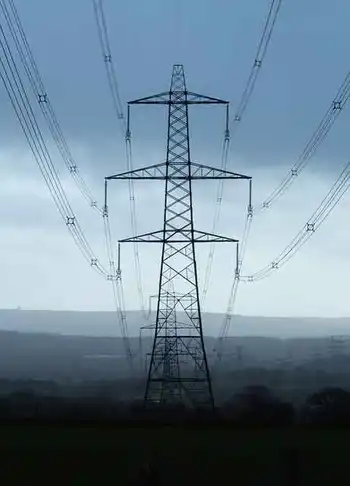Alberta's Rising Electricity Prices

NFPA 70e Training
Our customized live online or in‑person group training can be delivered to your staff at your location.

- Live Online
- 6 hours Instructor-led
- Group Training Available
Alberta Last-Resort Power Rate Reform outlines consumer protection against market volatility, price spikes, and wholesale rate swings, promoting fixed-rate plans, price caps, transparency, and stable pricing mechanisms within Alberta's deregulated power market.
Key Points
Alberta Last-Resort Power Rate Reform seeks stable, transparent pricing and stronger consumer protections.
✅ Caps or hedges shield bills from wholesale price spikes
✅ Expand fixed-rate options and enrollment nudges
✅ Publish clear, real-time pricing and market risk alerts
Alberta’s electricity market is facing growing instability, with rising prices leaving many consumers struggling. The province's rate of last resort, a government-set price for people who haven’t chosen a fixed electricity plan, has become a significant concern. Due to volatile market conditions, this rate has surged, causing financial strain for households. Experts, like energy policy analyst Blake Shaffer, argue that the current market structure needs reform. They suggest creating more stability in pricing, ensuring better protection for consumers against unexpected price spikes, and addressing the flaws that lead to market volatility.
As electricity prices climb, many consumers are feeling the pressure. In Alberta, where energy deregulation is the norm in the electricity market, people without fixed-rate plans are automatically switched to the last-resort rate when their contracts expire. This price is based on fluctuating wholesale market rates, which can spike unexpectedly, leaving consumers vulnerable to sharp price increases. For those on tight budgets, such volatility makes it difficult to predict costs, leading to higher financial stress.
Blake Shaffer, a prominent energy policy expert, has been vocal about the need to address these issues. He has highlighted that while some consumers benefit from fixed-rate plans, with experts urging Albertans to lock in rates when possible, those who cannot afford them or who are unaware of their options often find themselves stuck with the unpredictable last-resort rate. This rate can be substantially higher than what a fixed-plan customer would pay, often due to rapid shifts in energy demand and supply imbalances.
Shaffer suggests that the province’s electricity market needs a restructuring to make it more consumer-friendly and less vulnerable to extreme price hikes. He argues that introducing more transparency in pricing and offering more stable options for consumers through new electricity rules could help. In addition, there could be better incentives for consumers to stay informed about their electricity plans, which would help reduce the number of people unintentionally placed on the last-resort rate.
One potential solution proposed by Shaffer and others is the creation of a more predictable and stable pricing mechanism, though a Calgary electricity retailer has urged the government to scrap an overhaul, where consumers could have access to reasonable rates that aren’t so closely tied to the volatility of the wholesale market. This could involve capping prices or offering government-backed insurance against large price fluctuations, making electricity more affordable for those who are most at risk.
The increasing reliance on market-driven prices has also raised concerns about Alberta’s energy policy changes and overall direction. As a province with a large reliance on oil and gas, Alberta’s energy sector is tightly connected to global energy trends. While this has its benefits, it also means that Alberta’s electricity prices are heavily influenced by factors outside the control of local consumers, such as geopolitical issues or extreme weather events. This makes it hard for residents to predict and plan their energy usage and costs.
For many Albertans, the current state of the electricity market feels precarious. As more people face unexpected price hikes, calls for a market overhaul continue to grow louder across Alberta. Shaffer and others believe that a new framework is necessary—one that balances the interests of consumers, the government, and energy companies, while ensuring that basic energy needs are met without overwhelming households with excessive costs.
In conclusion, Alberta’s last-resort electricity rate system is an increasing burden for many. While some may benefit from fixed-rate plans, others are left exposed to market volatility. Blake Shaffer advocates for reform to create a more stable, transparent, and affordable electricity market, one that could better protect consumers from the high risks associated with deregulated pricing. Addressing these challenges will be crucial in ensuring that energy remains accessible and affordable for all Alberta residents.











